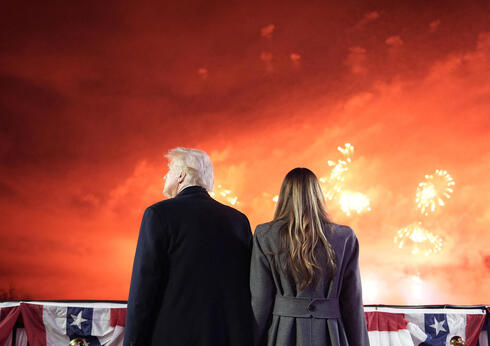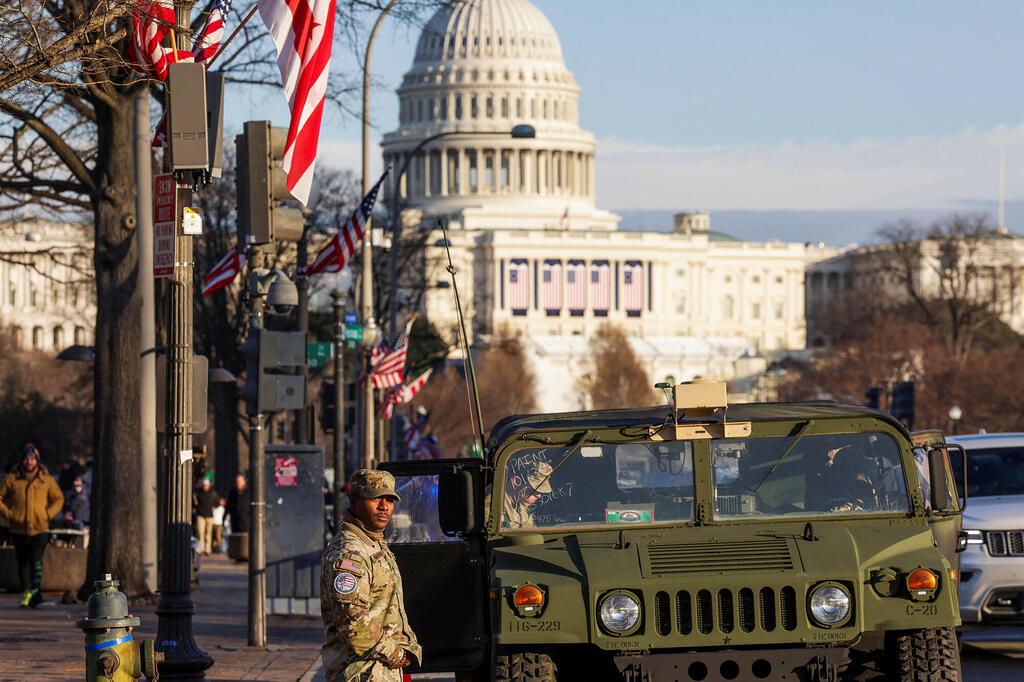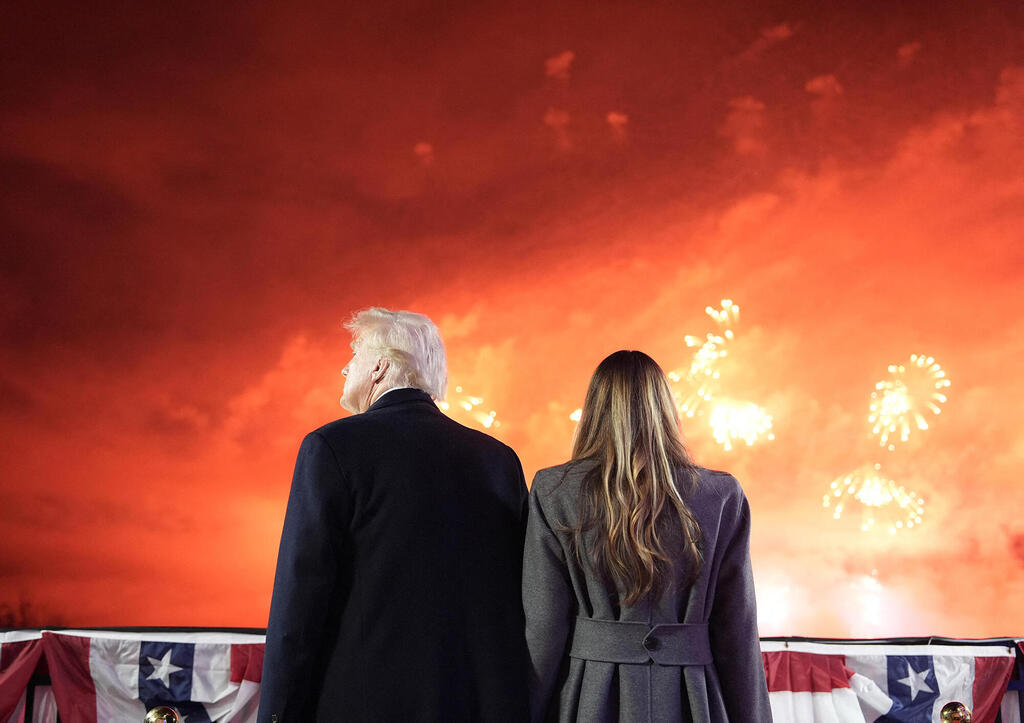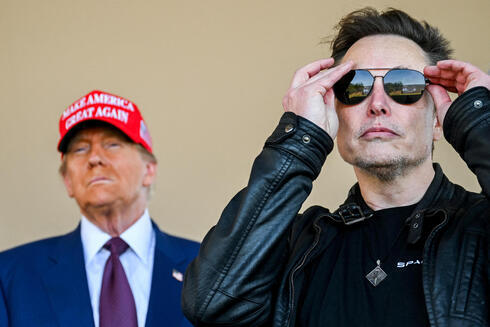
Trump’s second term begins with crypto, controversy, and sweeping reforms
The former reality star turned president will be sworn in on Monday after launching a $72 billion cryptocurrency, appointing polarizing cabinet members, and pledging mass deportations and trade wars.
Donald Trump, the 45th president of the United States, will be sworn in today in a more modest ceremony than he might have preferred, due to the freezing temperatures in Washington, D.C. The real estate mogul, who rose to fame as a reality TV star before becoming president of the most powerful country in the world, will take the oath of office in an indoor venue, without the backdrop of a massive audience.
Despite the scaled-down ceremony, Trump has not shied away from making bold moves. On Friday, the returning president launched his own cryptocurrency, $TRUMP, underscoring his enthusiastic stance on cryptocurrencies and his commitment to making the United States the global leader in crypto innovation. The cryptocurrency surged by 600% shortly after its launch, reaching a market value of $72 billion. This success, combined with Trump’s existing wealth, propelled him into the ranks of the 25 richest people in the world.
The second Trump presidency is expected to differ significantly from the first—marked by more radical, decisive, and polarizing actions. Trump has pledged to sign a “record number” of executive orders, which he claims will exceed 100. He has also demanded that Republican lawmakers expedite the confirmation process for key cabinet appointments. His nominees are proving even more controversial than those in his first term, including Robert F. Kennedy Jr., an outspoken anti-vaccine activist, as secretary of health and human services, and Pam Bondi, who denies the results of the 2020 election, as attorney general.
Trade Wars
France and Germany will respond forcefully
Trump has run for president three times, each campaign built around the slogan “Make America Great Again.” This rallying cry, now synonymous with the MAGA movement, anchors his “America First” philosophy. According to this principle, the international ambitions of the United States take a back seat to domestic priorities. Trump rejects the idea that a global superpower must sometimes sacrifice short-term gains to maintain its leadership in the world order. This philosophy is particularly evident in his approach to international trade.
Viewing himself as an economic expert and master negotiator, Trump believes any trade imbalance with foreign partners should be addressed swiftly. For him, trade is not merely an economic activity but a tool for achieving broader political goals. For example, if he faces issues with illegal immigration along the southern border, he imposes a 20% tariff on Mexican goods. If there are concerns about drug trafficking along the northern border, he levies similar taxes on Canada. And if South Korea exports more to the U.S. than it imports, he demands that it cover the costs of American military forces stationed in the country.
However, the events of recent weeks have highlighted the limitations of this strategy. In the initial phase, Trump’s hardline trade measures prompted swift responses from trading partners eager to preserve ties with the United States. For instance, outgoing Canadian Prime Minister Justin Trudeau flew to Mar-a-Lago to negotiate a resolution. Similarly, South Korea, despite grappling with a domestic political crisis, sought ways to rekindle its relationship with Washington.
Yet, beyond this initial diplomacy, Trump’s approach has fueled growing hostility on the international stage. Leading European economies, including France and Germany, have already announced plans to impose retaliatory tariffs on American products. Meanwhile, China has taken steps to restrict exports of critical components, such as lithium batteries, which are essential to many U.S. industries.
Beyond the immediate trade repercussions, the United States’ retreat from its role as the leader of the global order is creating a power vacuum. This shift may embolden rival powers, such as China and Russia, to assert themselves more prominently on the international stage, taking advantage of America’s perceived isolation under the “America First” policy.
Antitrust
Tech executives hope for regulatory flexibility
This week, the last legal barrier to banning TikTok in the United States was lifted, and the app is now officially prohibited. The move, which originated during Trump’s first term, has taken a new turn, with the returning president adopting a completely different approach. During his first term, Trump pushed aggressively to shut down the popular social network, but now he is expected to temporarily lift the ban, granting TikTok at least 90 days of grace. This shift in attitude toward the Chinese-owned company did not occur in a vacuum; it is largely attributed to pressure from influential technology leaders, spearheaded by Elon Musk.
Musk, who contributed approximately $277 million to Trump’s re-election campaign, has significant business interests tied to China. Tesla’s largest factory, located in Shanghai, is a cornerstone of his operations, making positive relations with the Chinese government crucial to his success. Musk led the lobbying effort that persuaded Trump to adopt a more conciliatory stance toward TikTok. Joining him were other prominent tech executives, including Mark Zuckerberg, CEO of Meta, and Jeff Bezos, founder of Amazon. While both had been vocal critics of Trump during his first term, this time they opted to align with him, hoping to soften his administration’s stance on the tech sector and gain regulatory flexibility both domestically and internationally.
As a goodwill gesture following Trump’s re-election, Zuckerberg dismantled Facebook’s fact-checking system, which had been in place for nearly a decade. This left his platforms — Facebook, Instagram, and others — largely devoid of significant content moderation tools. Instead, they now rely on user-driven mechanisms like "community notes," similar to the system Musk implemented on X (formerly Twitter) after acquiring the platform in 2022.
Zuckerberg, Bezos, and other tech leaders are hopeful that Trump’s second administration will adopt a less adversarial approach to their businesses, particularly regarding antitrust issues. Under the Biden administration, Federal Trade Commission (FTC) Chair Lina Khan had imposed stringent restrictions on tech giants, blocking mergers and acquisitions and launching investigations into monopolistic practices by companies like Google, Amazon, and Apple. Although Khan was a major force in Biden’s administration, her policies were divisive even among Democratic Party supporters. With Biden’s departure, tech executives anticipate the end of this era of regulatory scrutiny.
3 View gallery


Military preparations in Washington ahead of Donald Trump's inauguration)
(Pיhoto: Reuters/Mike Segar)
Elon Musk
Will wield immense influence
One of the most surprising developments in Trump’s new administration is the unprecedented role of Elon Musk. The world’s richest man, who played a pivotal role in Trump’s election campaign, has secured an extraordinary position: Director of the Department of Government Efficiency (DODGE). While the department is technically an external advisory body, it will operate from the White House complex and is expected to wield significant influence. Musk has pledged to slash $2 trillion from the U.S. federal budget — an ambitious goal many view as unrealistic without drastically reducing government services.
Musk’s influence extends far beyond budgetary reforms. He has become a key liaison between the Trump administration and the business world, earning a unique status as one of the president’s closest advisors. This was evident last month during Congress’s negotiations to pass an emergency budget to prevent a government shutdown. On the day of the vote, House Speaker Mike Johnson, a Trump ally, pushed for the bill’s passage. However, Musk intervened, tweeting over 150 times in opposition and calling for the replacement of any lawmaker who supported the bill. His efforts succeeded, as Republicans ultimately blocked the legislation. In a rare admission, Johnson later told Fox News that he had personally tried to convince Musk of the bill’s necessity, underscoring the billionaire’s outsized influence.
However, Musk’s proximity to the Trump administration is not without controversy. Disagreements are likely to arise between him and MAGA lawmakers, particularly on issues where their positions diverge. One notable point of contention is the H-1B visa program, which grants 85,000 work permits annually to highly skilled foreign workers, many of whom contribute to the tech industry. While Trump’s “America First” allies advocate for abolishing the program, Musk has called it “a pillar of American innovation.” In a rare departure from his usual base, Trump sided with Musk. “It’s a great program; I’ve used it many times,” Trump said in December, effectively ending the debate.
Immigration
First, illegal immigrants will be deported
One of Trump’s most prominent campaign promises is to tackle the issue of illegal immigration. During Biden’s presidency, the southern border of the United States experienced record waves of immigration, a situation that has sparked widespread concern among the American public, both on the left and the right. Vice President Kamala Harris was tasked with addressing the border crisis, but the administration was widely criticized for failing to manage it effectively. At the height of the crisis, an estimated 4,000 immigrants crossed the southern border daily.
The deportation initiative that Trump promised his supporters is historic in scale. It is estimated that approximately 10 million immigrants, both legal and illegal, have entered the United States since 2020. While these immigrants have helped alleviate critical labor shortages in low-wage industries, there is broad consensus across the political spectrum that the numbers are unsustainable. Criticism is primarily directed at illegal immigrants, many of whom entered the country by claiming asylum. Trump’s initial focus will be on deporting illegal immigrants who have committed crimes, ranging from minor offenses to major felonies, since entering the country. “We have to get the criminals out of the country,” Trump said last week. “This will start very early.”
According to Tom Homan, Trump’s newly appointed immigration czar, the mass deportation operations will begin in major cities, with Chicago being the first target. The operation is expected to launch during the second week of Trump’s term and will involve around 200 immigration agents. “We are starting right here in Chicago, Illinois,” Homan stated at a press conference. “If the mayor of Chicago doesn’t want to help, he can step aside. But if he obstructs us, or harbors illegal immigrants, I will prosecute him,” he warned. Chicago, considered a “sanctuary city,” has received about 50,000 immigrants since August 2022, many of whom were transported by buses organized by the Texas governor, who focused on moving asylum seekers.
The Climate Crisis
Green projects on the chopping block
Donald Trump is returning to the White House with promises to support the oil and gas industry, whose executives were among his campaign’s largest donors, and with threats to dismantle U.S. efforts to combat the climate crisis. Trump has pledged to issue a slew of executive orders immediately upon taking office, reversing numerous environmental protections enacted by the Biden administration in order to significantly boost the production of fossil fuels and strengthen the energy industry.
Although President Biden’s time in office has seen record-breaking oil production — growing from approximately 650 million tons in 2018 to over 800 million tons in 2023 — his administration also passed transformative laws like the Inflation Reduction Act and the Infrastructure Investment and Jobs Act. These initiatives aimed to accelerate the transition to clean energy and reduce carbon emissions.
Under Trump’s leadership and with Republican control of Congress, most of Biden’s climate policies are expected to be overturned. Trump, who has dismissed climate change as a “hoax,” has vowed to eliminate wind turbine projects on his first day in office and to roll back regulations on vehicle emissions. Embracing his pro-fossil-fuel slogan — “Drill, baby, drill” — Trump plans to withdraw the U.S. from the Paris Climate Agreement once again, placing the country in the same category as Iran, Libya, and Yemen. This withdrawal could undermine international climate finance programs that help developing countries transition to green energy and mitigate the impacts of global warming.
Domestically, Trump’s rollback of clean energy investments threatens to harm the U.S. economy. As green energy technologies become increasingly cost-effective and widely adopted, scaling back on these investments could make the U.S. less competitive on the global stage. A recent analysis by the Net Zero Coalition estimates that Trump’s policies could divert $80 billion in potential investments to other countries and cost the U.S. up to $50 billion in lost exports. Meanwhile, emerging powers like China are poised to dominate the global markets for electric vehicles, batteries, and renewable energy infrastructure.
Biden’s Inflation Reduction Act alone created approximately 300,000 jobs and spurred $150 billion in clean energy investments, the majority of which benefited Republican-controlled states. However, Trump has called such spending “wasteful” and promised to eliminate it. “I will immediately repeal the Green New Deal,” Trump declared during his campaign. “It’s the greatest fraud in the history of any country.”
















